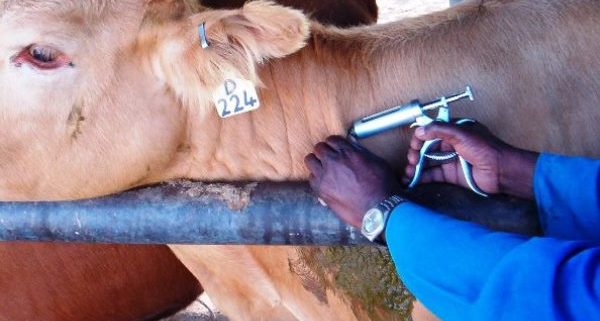Getting the most from vaccines – African Farming
Besides the cost of the vaccine, there is the cost of labour, equipment, time spent on vaccination, losses related to incorrect use, and so on. Vaccines must therefore always be handled and used correctly, at the right time, using the correct administration route, dose and equipment.
WHAT IS A VACCINE?
It is a product containing live, dead or weakened (attenuated) micro-organisms (or parts thereof) that cause disease in animals. The micro-organisms (or their products) are altered in the laboratory in such a way that they can no longer cause disease but still maintain their ability to stimulate the immune system.
Vaccines are like an army trained to stop an invasion by foreign forces. And any army must train regularly to prepare for an invasion – so do regular booster vaccinations!
To get the best out of your investment, you must understand and consistently put into practice certain basic vaccine handling recommendations.
COLD-CHAIN MAINTENANCE
An increasing amount of attention is given to cold-chain maintenance, especially in warmer seasons and in specific regions of the country. However, very little attention is given to the adverse effects of storing vaccines well below the recommended storage temperature range of 2°C to 8°C.
Some vaccines may be permanently destroyed by freezing. On the other hand, vaccines that need to be stored at -70°C may easily be destroyed by a higher temperature that is still below 0°C. A good example is blood vaccines (vaccines for anaplasmosis, redwater and heartwater), which not even a normal household freezer (around -15°C) can properly store. It is for this reason that blood vaccines are stored and transported in dry ice or liquid nitrogen and only thawed just before use.
THE CONCEPT OF SHELF-LIFE
Vaccines do expire, so check the expiry date on the vaccine before you buy it. You could buy vaccines closer to expiry if they are definitely going to be used immediately after purchasing.
HANDLING LEFTOVER VACCINE
It is better to plan vaccine orders in such a way that leftover vaccine can be shared with a neighbour. This should be done in the shortest possible time after you have finished the vaccinations. It is preferable to get the vaccine to the neighbour so that they can vaccinate on the same day.
The risk of contamination under field conditions is difficult to manage, hence the recommendation to safely discard leftover vaccine. Some vaccines that have to be reconstituted before use, for example the lumpy skin disease vaccine, need to be used as quickly as possible after mixing. The recommendation is usually for within an hour (or even less time) of mixing, before the live virus in the vaccine dies.
CLEANING YOUR TOOLS
While Covid-19 has put the spotlight on the importance of disinfectants and sanitisers, it is important to note that certain vaccines (especially live vaccines) are killed by exposure to such chemicals. It should become routine for farmers to boil needles to sterilise them inbetween uses. Please remember to let the needles cool down a bit and never attach hot needles to a syringe to administer a vaccine.
WORK HYGIENICALLY
It may not always be practical to change needles between animals when vaccinating, but certain circumstances require that we emphasise the importance of working hygienically.
For example, when vaccinating for lumpy skin disease in the middle of an outbreak you could risk spreading the disease through needles. In this case every animal must have a new needle. It is highly recommended that we vaccinate healthy animals first and suspicious animals must be isolated and vaccinated last, as another risk mitigation measure.
This will not help if there are “healthy animals” that may already be incubating the disease. The golden rule remains to vaccinate the animals way ahead of the risk period, for example around August-September for most insect-borne diseases. This also allows breeding animals that may have slight reactions to the vaccines to fully recover before the breeding season.
It is strongly advised that farmers use registered products. For example, a registered vaccine will have a G number and will be registered in terms of Act 36 of 1947 (Fertilisers, Farm Feeds, Seeds and Remedies Act). This is an assurance that the product has fulfilled the minimum approval requirements with regard to safety, efficacy and quality of the product.
There may be special circumstances where regulatory authorities will allow for a restricted use of unregistered products. The National Animal Health Forum website (nahf.co.za) has a lot of helpful disease information.
Another valuable resource is the Ruminant Veterinary Association website (ruvasa.co.za), where veterinary practices throughout the country report diseases they encounter in the field as they carry out their duties. Always read the package inserts on all vaccines (and other medicines in general).
Speak to your local veterinarian or animal health technician regarding customised vaccination programmes that can help make a difference to your operation.
Dr Sello Maboe is the technical and marketing manager at Onderstepoort Biological Products. Email him at sello.maboe@obpvaccines.co.za.




Leave a Reply
Want to join the discussion?Feel free to contribute!